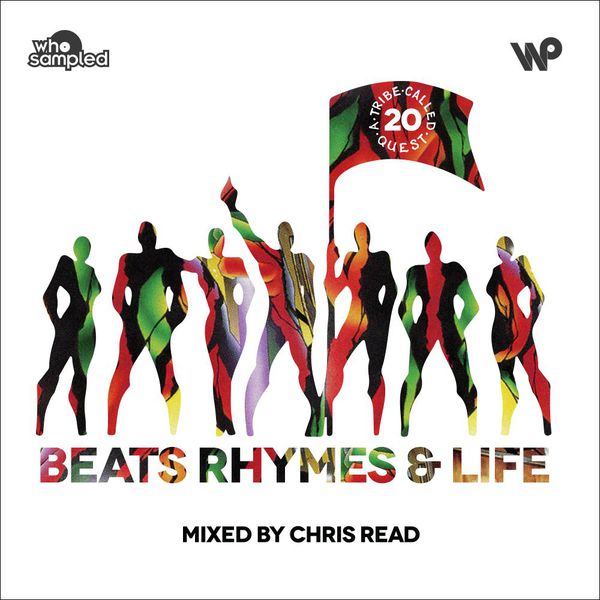Best new music
- A Tribe Called Quest Beats Rhymes And Life Album Download Free
- Beats Rhymes And Life T-shirt
- Beats Rhymes And Life Wikipedia
Beats, Rhymes And Life. Stream Beats, Rhymes & Life by A Tribe Called Quest and tens of millions of other songs on all your devices with Amazon Music Unlimited. Exclusive discount for Prime members. This is a really great album and probably one of the best by A Tribe Called Quest. It has their trademark smooth style and flow with a much. Apr 13, 2013 - A Tribe Called Quest - Beats, Rhymes And Life (1996) 320kbps. Country: USA Released: 1996. Label: Jive Quality: 320kbps. Duration: 51:20.
A Tribe Called Quest’s sixth (and final) album was a rumor for 18 years. It’s here, and against many odds, it reinvigorates the group’s discography without resting on nostalgia.
Since their 1990 debut, People’s Instinctive Travels and the Paths of Rhythm, A Tribe Called Quest have been forward-thinking, presenting their albums as full-length meditations on sound and society. They didn’t break new ground as much as they dug deeper into the lands beneath their feet, turning stones and cultivating fertile soil, unearthing the past and tending the roots, with album-length suites centered around loose conceits—the light diary of Instinctive Travels, the aural dive into drums, bass, and downbeats of 1991’s The Low End Theory, the pan-African flight of 1993’s Midnight Marauders, the dysfunction of hip-hop’s materialism on 1996’s Beats, Rhymes and Life, and the yearning sadness of 1998’s The Love Movement. The latter strived to serve as a healing elixir and balm for what was, up until recently, the swan song for one of the greatest acts that hip-hop has ever produced.

Alluded to constantly via rumors and unfounded hopes, a forthcoming Tribe album seemed like wishful thinking for years. Despite the assurances of legendary music executives, fans could not be blamed for being cynical. The group had splintered fabulously, as documented in Michael Rapaport’s unflinching 2011 documentary Beats, Rhymes & Life: The Travels of a Tribe Called Quest. Moreover, the death of member Malik “Phife Dawg” Taylor earlier this year, seemed to ensure that any future efforts would be full of excavated throwaways and repurposed vocals from other projects made fresh via studio magic. Yet, We got it from Here exists, their sixth (and final) album, and it’s full of unblemished offerings that were recorded at Q-Tip’s home studio following their performance on Jimmy Fallon’s The Tonight Show one year ago. And, against many odds, it’s an album that reinvigorates the group’s enviable discography without resting on the nostalgia of past accomplishment.
The album’s first number, “The Space Program,” is quintessential Tribe—it has that sooty bottom heavy warmness, the uncluttered arrangements and bright instrumentation, and it sounds like a piece of 2016 instead of a fragment of 1994. For the first time in their career, the entire group appears to be at their peak, exuding a well-earned effortlessness. Even if Ali Shaheed Muhammad is listed nowhere on the credits, the act’s three MC’s—the abstract Q-Tip, the ruffneck Phife, and the often M.I.A. Jarobi—are on point all the time, picking up each other's couplets and passing microphones like hot potatoes. On “The Space Program,” Jarobi rhymes “We takin’ off to Mars, got the space vessels overflowin’/What, you think they want us there? All us niggas not goin’,” before Q-Tip nimbly takes over with “Reputation ain’t glowin’, reparations ain’t flowin’/If you find yourself stuck in a creek, you better start rowin’.” The song plays with a sci-fi framing—“There ain't no space program for niggas/Yo, you stuck here, nigga”—yet it’s not about an imaginary future, but right now. “Imagine if this shit was really talkin’ about space, dude,” Q-Tip raps, unveiling the entire song as a metaphor for gentrification, perhaps even forecasting the showdown over the Dakota Access Pipeline at Standing Rock. And just that quickly, you realize that Tribe—poetical, allegorical, direct, and forever pushing forward from the present—are back as if they never left.
The timeliness of this album can’t be understated, nor could it have been predicted. On “We the People…,” Q-Tip breaks out into a mini-song as hook: “All you Black folks, you must go/All you Mexicans, you must go/And all you poor folks, you must go/Muslims and gays, boy we hate your ways/So all you bad folk, you must go.” It follows in the pathways of Jamila Woods’ HEAVN and Solange Knowles’ A Seat at the Table as an album that expresses the deeply painful and deep-seated racist attitudes of current America without rancor. That the hook echoes President-elect Donald Trump’s most famous and reductionist campaign views works in ways that it would not had Hillary Clinton garnered enough electoral college votes to win the election. (For comparison, the video for Ty Dolla $ign and Future’s“Campaign,” released the day before the election, seemed to bank on a Clinton victory in its jubilation, but now feels tone deaf.) Ironically, Tribe may have also been seeing a Clinton victory; Q-Tip references a female president on “The Space Program.”

A decade and a half ago, while working on his (erroneously shelved, then belatedly released) sophomore album Kamaal the Abstract, Q-Tip was asked about grown men making hip-hop music—he had, after all, just entered his thirties and was still playing at what is largely a young person’s game. He countered that hip-hop was not solely a youth genre; that the media and commercial forces had made it so; that the top MC of the moment—Jay Z—was in his thirties; that the best art comes not from the exuberance of youth, but the mastery of form. We got it from Here proves that he was right.
Q-Tip has long been quietly regarded as one of hip-hop’s most thoughtful and inventive producers, and this album is full of accomplished flourishes. On the lascivious “Enough!!,” the vocals of Ms Jck (of undersung alt-R&B progenitors J*Davey) are treated like source material, woven into the musical bed. There are layered, echoing, melodic sonic manipulations and restrained uses of Jack White and Elton John on “Solid Wall of Sound.” On the introspective and confessional “Ego,” White (again) is used sparingly and smartly for subdued electric guitar touches. *We got it from Here *is not the music of a producer showing off, but of one knowing what to do and when to do it. There is a bevy of guests on this record, but they all serve the project like instruments that come in and out without attempting to take over with solo turns.
A Tribe Called Quest Beats Rhymes And Life Album Download Free
When “Dis Generation” uses a sample of Musical Youth’s “Pass the Dutchie,” one can see a labyrinth of in-jokes and conceptual easter eggs that extends to the rhymes: Phife prefers cabs to Uber; Jarobi is wizened, smoking on “impeccable grass” and waiting for New York to approve medical marijuana; and Busta Rhymes—who appears multiple times and sounds more at home with his Native Tongues brethren than he ever has with the extended Cash Money bling set or even on his The Abstract and the Dragon mixtape with Q-Tip—is “Bruce Lee-in’ niggas while you niggas UFC.” For his part, Q-Tip shouts out Joey Bada$$, Earl Sweatshirt, Kendrick Lamar, and J. Cole as “gatekeepers of flow/They are extensions of instinctual soul.” It’s what ATCQ has always been—self-referential without being self-serving, part of the pack but moving at their own pace, and able to lightly and relatedly convey observations that would be heavy and pedantic from just about anyone else.
It can’t be said enough how simply good this record sounds and feels. Everyone here shows themselves to be a better rapper than they have ever been before, but that still doesn’t capture the ease and exuberance of it all, how Q-Tip curls flows and words on “The Donald,” how Jarobi surprises with packed strings of rhyme at each turn, how Phife and Busta Rhymes dip effortlessly in and out of Caribbean patois and Black American slanguage. (And that’s not even taking into account Consequence’s inventive word marriages on “Mobius” and “Whateva Will Be,” Kendrick Lamar’s energetic angst on “Conrad Tokyo,” or André 3000’s and Tip’s playful tag team on “Kids…”) The music is decidedly analog, a refutation of polished sheen and maximal perfection; it’s an extension and culmination of ATCQ’s jazz-influenced low-end theory. But that doesn’t capture the bounces, grooves, sexual moans, random bleeps, stuttering drums that float throughout—like every classic Tribe album, it defies simple descriptions.
Beats Rhymes And Life T-shirt
Many of the songs here hearken back to off-kilter and underexposed gems of days past (see: Tribe’s “One Two Shit” with Busta Rhymes and De La Soul’s ATCQ-featuring “Sh.Fe. MC’s” from days past for musical antecedents) without feeling like retreads, the free-wheeling whimsy and experimentation of the past having been replaced a grounded irony and proficiency. So much has stayed the same and yet so much has changed.
There’s no overriding story that easily presents itself—no vocal guide a la Midnight Marauders, no driving ethos served on platter like the Low End Theory; the title itself, which lends to an interpretation of this as a project of hubris demanding homage, is never explicitly explained. Even Phife’s death is given due reverence, but isn’t treated as a central theme. We got it from Here... Thank You 4 Your service is all just beats, rhymes, and life. Nothing about this feels like a legacy cash-in; it feels like a legit A Tribe Called Quest album. We should be the ones thanking them.